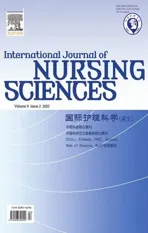A scoping review of COVID-19-related stress coping resources among nurses
2022-05-10AshikurRahman
Ashikur Rahman
a Dhaka Medical College Hospital (DMCH), Ministry of Health and Family Welfare, Dhaka-1000, Bangladesh
b National Institute of Preventive and Social Medicine (NIPSOM), Mohakhali, Dhaka-1212, Bangladesh
Keywords:COVID-19 Health personnel Mental health Nurses Pandemics Psychological adaptation
ABSTRACT Objective: The entire mental health hazard among the nurses dealing with COVID-19 is just the tip of the iceberg.The goal of this study was to find acceptable and adaptive coping techniques for nurses in order to keep the healthcare system resilient during and after the COVID-19 pandemic.Method: The scoping review search took place from January 2020 to May 2021 published articles, and the results were saved in Endnote software.For data synthesis and review, the Joanna Briggs Institute manual and PRISMA-ScR principles were followed.Following backward and forward screening to exclude redundant, irrelevant, and ineligible studies,13 studies (3,613 nurses) were finally selected for this review.Results: The majorities of participants in these studies were female and had children, and worked in departments of critical care,emergency,and fever clinics.Safety concerns for family or colleagues,as well as a lack of safe working environment, were the primary causes of the mental illness.Professional responsibility attitude, COVID-19 training, workplace safety, team spirit, and a few relaxation activities such as deep breathing,reading books,watching movies,and praying, on the other hand, were found to be beneficial for stress coping among nurses.Conclusion: Mentally fit nurses are more capable and flexible in the face of any life-threatening outbreak,even if it is very contagious.Several coping strategies were found to be effective for nurses during the COVID-19 pandemic, whereas problem-specific intervention trials might yield even better results.We should not delay specific mental health interventions to keep them viable and more efficient during a pandemic battlefield, whereas Post-Traumatic Stress Disorder and suicide rates can destroy the entire health care system.
What is known?
· Nurses are at a high risk of stress-related mental illness during any epidemics,as they are the key frontline health care workers in hospitals.
· Despite the overwhelming pressure in hospitals, nurses are willing to face outbreak management valiantly.
· Most of the time, nurses’ mental illness and their coping mechanisms go unacknowledged and unaddressed by the authorities due to neglect.
· Infection prevention training, hand washing and exercise are known as self coping techniques.
What is new?
· Mental preparedness and a responsible professional attitude during the COVID-19 pandemic are crucial,which compromises an extra level of stress among the nurses.
· Nurses felt mentally relieved when their family members and colleagues were safe and did not show any COVID-19 symptoms.
· COVID-19 crisis management should not exclude nurses’ working flexibility,safe working environment,psychological support services, and infection prevention training.
· Emergency and critical care nurses are more vulnerable to having to deal with tremendous workloads during a pandemic,resulting in insomnia, stress,anxiety, depression, and fatigue.
· Nurses contributions to the fight against an unknown pandemic must be encouraged and recognized by family,community,and nationally.
1.Introduction
The COVID-19 is a contagious disease [1,2]that has emerged as one of the most significant global and public health challenges [3]since the second world war [4].The severe acute respiratory syndrome (SARS) in 2002, the Middle East Respiratory Syndrome(MERS) in 2012 and the COVID-19 were all caused by the Coronavirus [5,6].However, the COVID-19 pandemic has broken all previous records,even compared to the Ebola virus disease(EVD)first described in 1976.This includes the duration of the pandemic,the number of individuals infected with, deceased from, or otherwise affected by this virus (e.g., loss of income, job, family/friends, and related mental health issues) [7].COVID-19 has caused an unprecedented mental health crisis, so advanced that some have referred to it as a mental health pandemic or secondary pandemic within the COVID-19 pandemic [8].
Frontline health workers (FHWs) are particularly vulnerable to the effects of COVID-19.This includes the risk of infection and death because of their professional responsibility to care for patients infected with COVID-19 [9]and the resulting exposure to patients infected with COVID-19 [4].In addition to these physical risks, the SARS and Ebola virus outbreaks [10,11], as well as the COVID-19 pandemic [12], have caused mental traumas among healthcare workers–so severe that many left their jobs.At the same time,as a result of their employment at COVID-19 institutions, health professionals endured prejudice and disregard from society;even their family members had to urge that they leave their area [13,14].
However, healthcare systems in general, especially those in developing countries, struggle with protecting their healthcare workers [15-17]due to the lack of personal protective equipment(PPE) [16], limited testing capacity [18], and insufficient oxygen supply [19].This lack of preparedness and the stressful working conditions (lack of training, excessive workloads, staff shortages)causes fear and anxiety among healthcare workers and having to watch people die without support from their families or a friend causes frustration and anger[20].Moreover,some nurses had been fired for refusing to work under stressful conditions and when asking for standard PPE and safety training [21].Additionally, fear of infecting their family and children increased healthcare workers’stress [22].Therefore, many healthcare workers have isolated themselves from their families to protect them [23].Studies have documented persistent mental problems among nurses [17,24].In turn,physically and mentally exhausted nurses are at higher risk to make mistakes and becoming infected with COVID-19 [17].
Because of these reasons mentioned above, the COVID-19 pandemic has produced unparalleled fear among nurses [25].According to a recent study,large numbers of hospital nurses suffered from stress(43%),anxiety(37%),sadness(35%),and sleep disturbance(43%).These proportions are significantly higher than in the general populationduringthe same period[25,26].Criticalcare nurses during the COVID-19 pandemic reported decreased appetite (59%), fatigue(55%),insomnia(45%),and suicidal thoughts(2%)[27].An increasing concern noticed in a case study is nurses’suicides due to COVID-19[28].Six nurses took their lives due to fear of transmitting the disease to their family members, social isolation, feeling guilty of infecting others and overwhelming death news in the newspapers and social media.At the same time, healthcare workers have been avoided by their families or community due to stigma or fear[29].
These issues have been going on for almost two years now,and we do not know when thesewillend.According to one study,10%-40%of health workers would develop Post-Traumatic Stress Disorder(PTSD)symptoms between one and three years following a pandemic[30].The nursing population mostly consists of female workers in whom social interaction is forbidden due to stigma and is at risk of post-COVID mental illness [31,32].Depression and anxiety disorders are the leading cause of global years lost due to disability[33,34].Longterm sick leaves are associated with psychiatric disorders,leading to loss of workplace productivity [35-37].Physical health and mental health are intricately linked, and supporting healthcare workers to prevent or cope with these multiple impacts of the COVID-19 pandemic will be critical [38,39].Problem-based and emotionbased coping are well-known strategies to retrieve unwanted stress,which motivate self to modify the behaviors [40-42].To cope psychologically with the stress of the ongoing epidemic,nurses said they had to create new ways of coping or change their pre-existing routines[43].Self-care strategies included quiet prayer and meditation,exercise,crafts,virtual meetings with friends,time spent with loved ones,and a commitment to continueone’s nursing educationto make them resilient in the COVID-19 pandemic[44].
To date,to the best of our knowledge,few previous reviews have synthesized the available evidence on coping resources to help nurses prevent or mitigate the mental health impacts of COVID-19.Nurses are the core of health care delivery,and their contribution is key to overcoming the COVID-19 crisis.This review will also be essential in providing specific advice to policymakers on how to effectively support nurses’ mental health during the COVID-19 crisis–an essential component to ensuring a functional and powerful workforce to help overcome this pandemic.
2.Materials and methods
2.1.Overview
A mix studies review method was used for the synthesis of effective coping resources for the nurses during the COVID-19 pandemic.A specific search technique was used to filter the correct picture of the mental problems among the nurses, and relatively effective coping strategies were identified to ameliorate the psychological conditions.There are lots of data related to COVID-19 concerning mental health for the forefront health care staff.Despite this,few of them recommended good coping strategies for the nurses,leaving their problemignoredorunacknowledged,resulting insevere mental illness and,in some cases,suicide[31].Effective coping strategies for retrieving COVID-19 related mental illness were obtained following the PRISMA extension (PRISMA-ScR) [46]for scoping review and Joanna Briggs Institute re-viewers guidelines[45].
2.2.Review stages
To synthesize the findings and gain a deep understanding of the existing evidence,a scoping review of previously published articles was conducted, which included five stages: identification of the review goal,extensive literature search and protocol development,data screening, data analysis, and presentation [47].
Stage-1(Identification of review aim):Given priority in COVID-19 mental illness, the first problem was selected and focused on the nurses directly dealing with COVID-19 management, not student nurses or intern nurses.Then, outlined the specific aims and significance of this study.
Stage-2 (Extensive literature search for protocol development):
Gross literature searches in electronic databases, grey literature,and manual completion of this stage.At the same time, after reading a few papers, selection criteria were finalized, in which health care practitioners, student nurses, and even non-medical professionals were eliminated.
Stage-3 (Data screening): The search methodology was used to find publications relevant to COVID-19 mental illness and coping styles among nurses in databases, grey literature, and manuals.In the EndNote software, duplicate articles were eliminated, and the retrieved studies were exported.The review process and selection procedure were independently reviewed by the author and an expert.All of the included papers’reference lists were examined for additional relevant publications that were not found during the database searches to avoid any chance of missing them.
Stage-4 (Data analysis): The author created a data extraction table in Microsoft Word with the following elements: first and corresponding author, journal name, years, research objectives,target population, sampling technique, validity, reliability, key findings, mental illness, the scale of measurements, journal language, and coping styles.The author double-checked and rechecked the article’s aims, research results, target population, and quality evaluation.On the other hand,discrepancies were carefully resolved through conversation with an expert.
Stage-5 (Data presentation): Finally, after careful synthesis of qualitative and quantitative data, it is presented in the form of tables and figures.A list of coping resources for the nurse to effectively recover from mental stress during the COVID-19 outbreak was systematically sorted out.
2.3.Scoping review protocol
To step up with scoping review, Arksey H & O’Malley [48]scoping review guidelines were followed, and a structure was developed for successful completion of this study, including study objectives, research questions, inclusion and exclusion criteria,search strategy, data sources and quality appraisal (Table 1).
2.4.Data extraction and analysis
The search keywords for electronic databases(Table 2)were set and recorded in EndNote software based on inclusion and exclusion criteria.For data extraction, synthesis, analysis, and comparison,appropriate tools were chosen:COREQ for qualitative research[49],and STROBE for observational studies [50].
2.5.Quality appraisal
The Critical Appraisal Skills Programme (CASP) Checklist was used to determine the quality of data included in this study [51].Each checklist systematically allowed the reviewer to assess the validity of the results by determining whether the study clearly stated the purpose, reviewed relevant background, reasonably justified its analysis and results,and so on.The CASP Cohort Study checklist scored quantitative studies from 0 to 12, with 10-12 indicating high quality and 6-9 indicating moderate quality.The CASP qualitative study checklist was used to provide ratings to qualitative studies, with 8-10 representing the high quality research and 5-7 suggesting moderate.Overall, all of the papers were found at a high quality level.
3.Results
3.1.Study’s characteristics
A total of 479 articles were retrieved from PubMed(141 articles),HINARI (70 articles), Scopus (18 articles), Cochrane (46 articles),Web of Science (83 articles), Google Scholar (92 articles),ResearchGate (21 articles) and Manual search (8 articles).After a careful analysis,147 articles had been removed for duplication,and the titles and abstracts of 332 articles were catiously screened for relevance.Of these,64 full texts were comprehensively assessed for the proposed inclusion and exclusion criteria.Finally, 13 studies eventually satisfied the review requirements (Fig.1).
3.2.Research domains
In the 13 research studies included in the scoping review(Table 3),3,613 nurses expressed their thoughts and praised coping techniques.The papers included 7 cross-sectional studies[52-56,58,61],2 qualitative study[57,59],2 mixed-method studies[60,62],1 comparative study [64], and 1 pilot-based study [63].Of these,4 studies are from China[53,57-59,64],and 3 from America[55,60,61].The research covered both males and females.However,the majority of the participants in each research were female.It is worth mentioning that nearly half (6/13) of the studies were carried out among emergency nurses [53-56,59,63]followed by critical care nurses(5/13)[54,55,59-61],and the rest of them were from fever clinic, isolation ward, OT, oncology department.Nearly one-third of the included studies (4/13) did not mention their participants’ working department[52,58,63,64].
3.3.Mental health stressors and outcomes
This study outlined common mental health stressors among nurses during COVID-19,with the majority of nurses believing thathigh workload, fear of infecting family members, having children,working in an emergency or intensive care unit,lack of knowledge,media news,poor standard of PPE,and insufficient medical supplies were the main causes of psychological illness (Table 4).It is also illustrated the commonest mental health problems:fatigue,anxiety,stress,depression,fear,burnout,insomnia and restlessness.
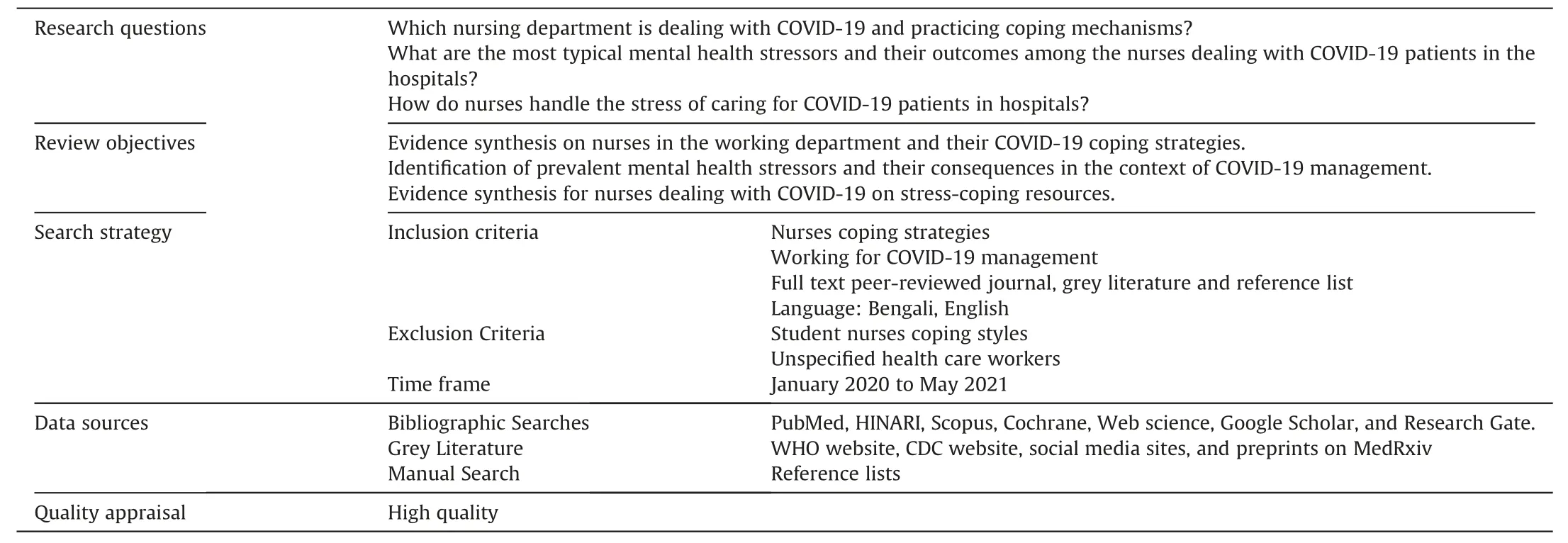
Table 1Literature review protocol.

Table 2Key terms to be used for searching electronic databases.
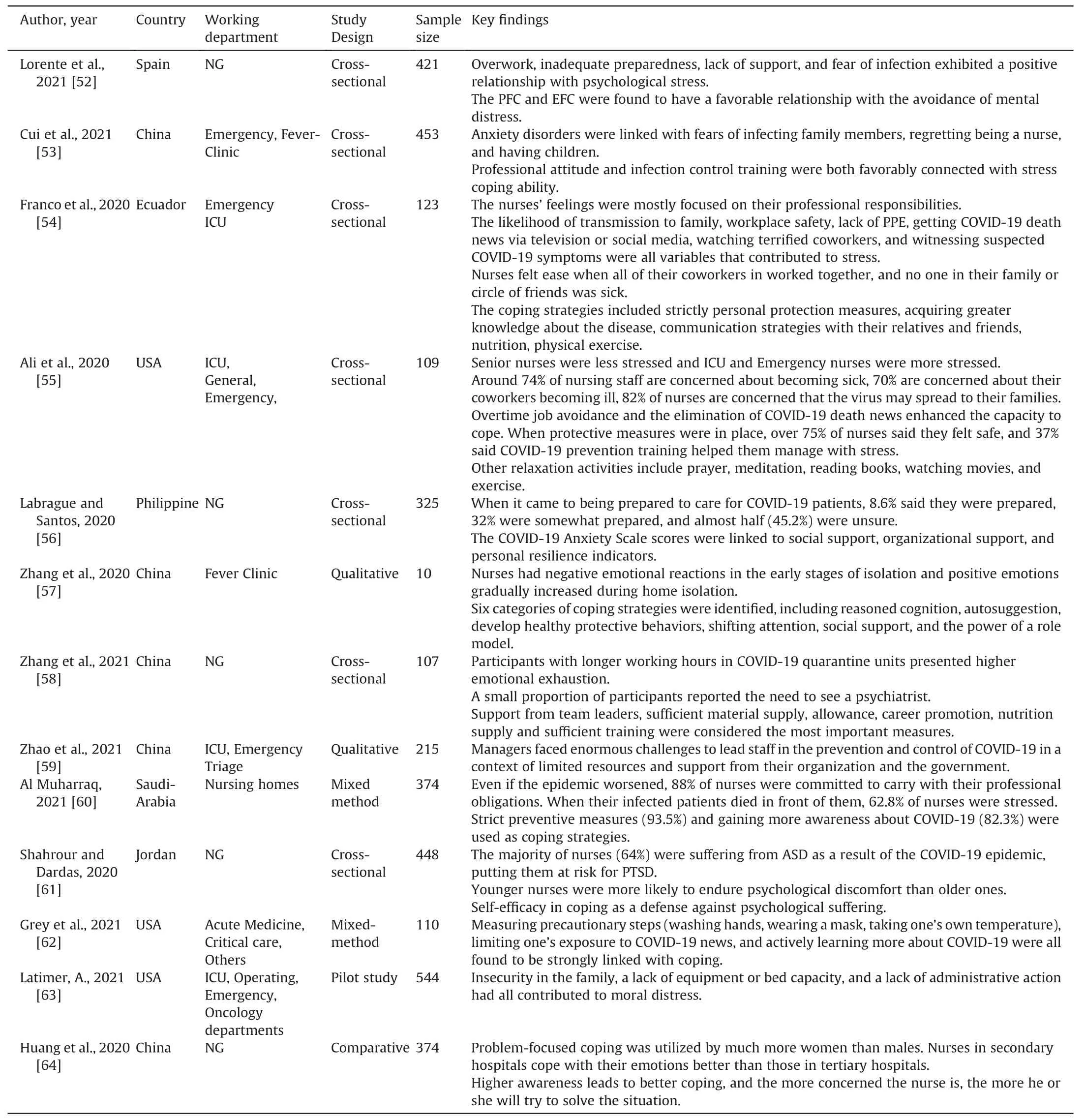
Table 3Socio-demographic and methodological features(n =13).
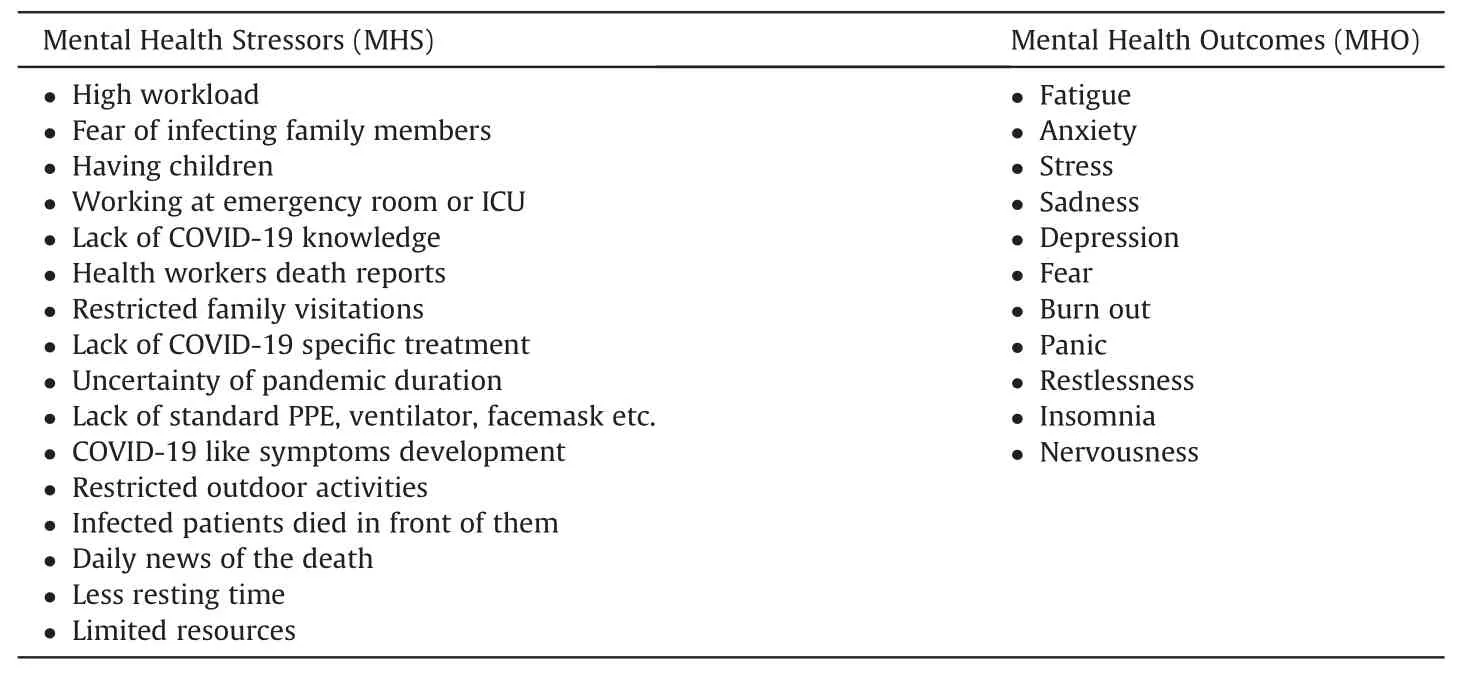
Table 4Common mental health stressors and outcomes by the nurses.
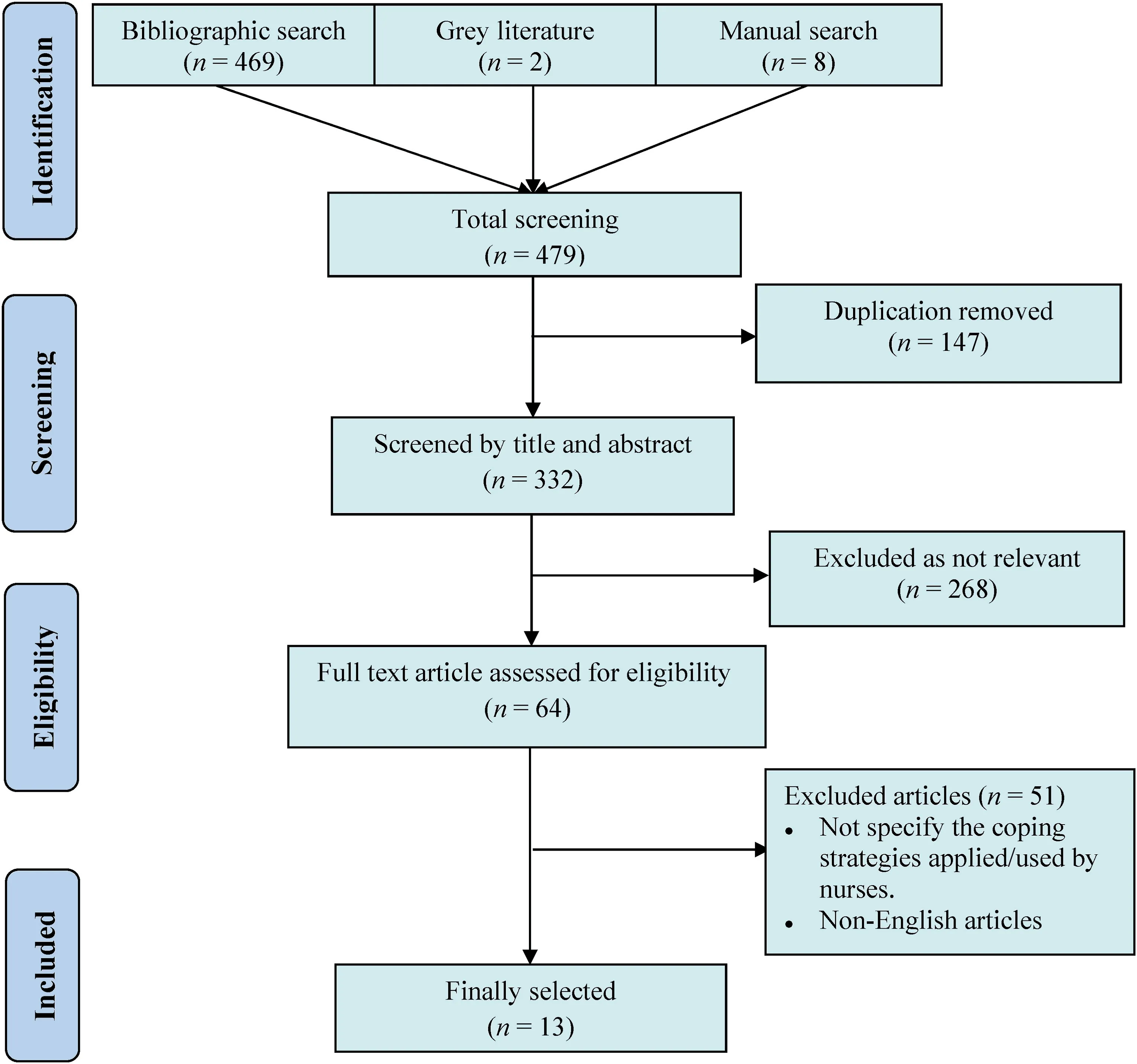
Fig.1. Flow diagram of the study selection.
3.4.Coping resources
Nurses’ coping resources are similar to those of physicians in one point of view while their extensive workload, sociodemographic position and the administration’s ignorance place them at a greater risk of mental illness than doctors or other health care providers.So the one of the goals of this study was to figure out the nurse’s mental health problems and their coping mechanisms in the COVID-19 pandemic situation, shortly portrayed in Fig.2.
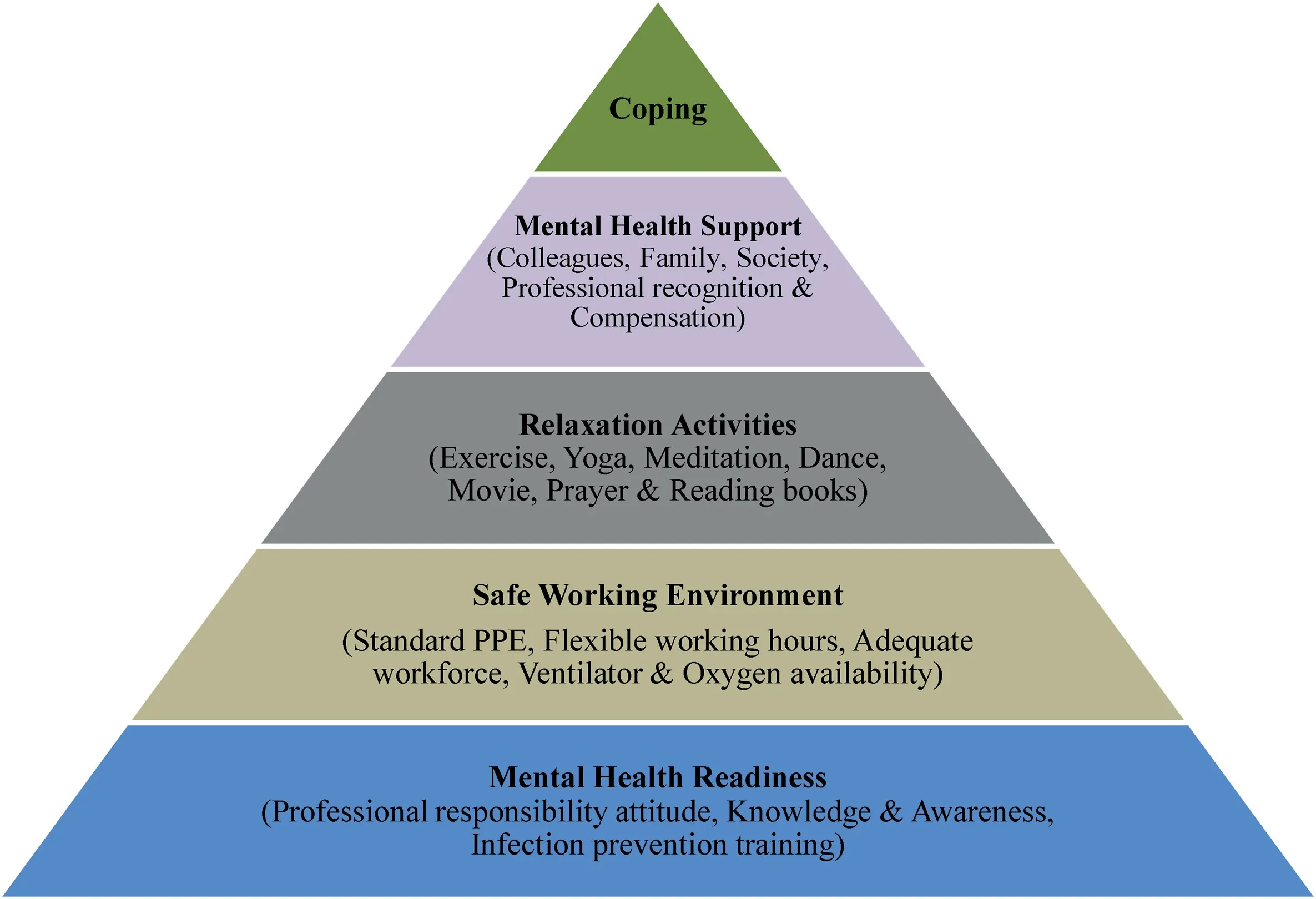
Fig.2. Overall stress coping resources for nurses responding to COVID-19.
3.4.1.Professional responsibility attitude
A responsible mindset is necessary to perform during an outbreak,according to the nurse job description.Out of 13 studies,3 studies mentioned professional practice as a significant factor fordealing with outbreak management.COVID-19 is a global emergency, and nurses must retain their commitment as a matter of professional practice in the face of it[53,57].The nurses,who were most motivated to tackle COVID-19,had a beneficial impact on their coping [54,59].Positive verbalizations like self-motivation enhanced coping levels significantly[57,61].
3.4.2.COVID-19 knowledge and awareness
Nearly two-thirds of the 13 studies found that COVID-19 training improved nurses’ coping through awareness.As a result, a better comprehension of COVID-19 is needed [57-60,64], as well as emergency preparedness training [53,58,62,63]and learning preventative approaches significantly improved mental health of the nurses [53,55,57].
3.4.3.Strict protective measures
Over half of the participants in surveys ranked personal safety in hospital settings as the most important factor in managing their stress.To justify, developing healthy protective behaviors (handwashing, strengthening indoor ventilation, use serving chopsticks and spoons at meal times), strict personal PPE management[53,54,57,58,60], handwashing [55,58], at the workplace all improved coping [55,62].At the same time, this workplace behavior ensures self-preservation and reduces the risk of SARS COV-2 among colleagues and household members.
3.4.4.Flexible working hours
Working hours were a critical component in the field of coping with mental illness.It was noticed that people who worked for extended periods of time in order to combat COVID-19 survival were more prone to developing mental illness.In this aspect, the majority of nurses stated that the flexibility of working hours,sufficient manpower,and flexible duty schedules help to overcome negative emotional disturbances [54,55,57,58].
3.4.5.Relaxation activities
Relaxation activities were one of the most prominent coping strategies utilized by nurses during the COVID-19 pandemic,mentioned in more than half of the studies.Relaxing activities were preferred by nearly two-thirds of nurses, assist in eliminating mental illness [58].Exercise, yoga, meditation, and dance are among some of the coping activities that manage stress and anxiety among nurses [55].It was also noticed that a lot of the nurses exercised: deep breathing exercises strengthen the parasympathetic nervous system [54,57,62]; skipping rope daily to build up a resistance [57,62].To relieve overwhelmed stress, the nurses watched their favorite movies during leisure time[55,57,62],listened to music [57], read books and occupied themselves with cooking and cleaning[57].According to Ali et al.(2020),nearly half of the nurses choose religious and spiritual activities such as prayer to make them more mentally healthy [55].However, it was less evident that weeping and screaming to alleviate emotional intolerance might help nurses stay free of mental anxiety, stress and depression [54].
3.4.6.Family and colleagues support
ONCE upon a time in the middle of winter2, when the flakes of snow were falling like feathers from the sky, a queen sat at a window sewing, and the frame of the window was made of black ebony. And whilst she was sewing and looking out of the window at the snow, she pricked her finger with the needle,3 and three drops of blood fell upon the snow. And the red looked pretty upon the white snow, and she thought to herself, Would that I had a child as white as snow, as red as blood, and as black as the wood4 of the window-frame.
In each study,the majority of the nurses concluded that they felt confident when they received mutual support and a warm environment from colleagues and supervisors[57-59],as well as when they worked as a team member[54,58].It was also found that due to isolation after working at the COVID-19 unit,nurses had to stay in nursing homes while peers passed their loneliness and leisure activities by developing stronger bonds and work relationships,which acted as tension relievers[58,59,62].
By sharing and maintaining good communication with family members, family members can play an important role in reducing mental illness.Spending time with family and friends[54,57-59,62], husband [57], and children [54]were significantly associated with defending mental illness for the nurses during the COVID-19 pandemic.
3.4.7.Address recognition and compensation
Fighting against an incurable virus (SARS-COV-2) puts the nurses’lives at risk,while most of the nurses expected national and social acknowledgment for their sacrifices, compromises and success[63].It was observed that the majority of the nurses identified government allowance and compensation for lost life were the key factors for mitigating mental illness due to COVID-19 [54,58].
3.4.8.Seeking psychological support
Nurses should require counseling from a medical psychiatrist,therapist,or mental health support team to cope with unavoidable stress[54].They emphasized the need for them to put to use [58].When nurses sought help dealing with mental illness, the management team took the required measures and taught coping methods [57].Problem-focused coping is the best solution for the retrieval of psychological distress [52,64].More than a quarter of the nurses said that consulting with a psychologist is necessary for coping.Having a friendly authority to communicate everyday psychological difficulties might be safer and more relaxing [63].COVID-19 like symptoms might get intensified mental illness and it can be relieved through RT-PCR test and clear the doubt.In a qualitative study,a nurse said that she felt relaxed when she found the normal test report [57].
3.4.9.Ignore COVID-19 media news
Avoiding COVID-19 fatalities news on media could help the nurses to stay out of the panic [57], while news updates on death published by the electronic media could increase the chances of stress and anxiety.It also suggested that keep busy with family chores and other activities to distract from the COVID-19 surge information [54].More than half of the nurses admitted that they had avoided media news about the high mortality and morbidity rate resulting from COVID-19 for relieving stress[55,57,58]as well as reducing the use of virtual networks [62].
More vitamin and nutrition supplements were recommended by the nurses to help establish a healthy immune system and combat COVID-19.A few nurses believed that consuming more nutritious foods might relieve mental stress by increasing body autoimmunity [54,58].
3.4.11.Social support
It was worth noting that familial immunity to the COVID-19 outbreak might provide mental relief from tension, anxiety and panic.Nurses became happier when their family and friends were not infected with COVID-19, according to two studies [54,58].For ensuring family and residential safety from infections, nurses had to avoid visitations.Social support, organizational support, and personal resilience measures were associated with decreased scores in the COVID-19 anxiety [56].
4.Discussions
Nurses working in the emergency rooms,critical care units,and fever clinics were found to be the most likely to use coping styles as a result of their heavy workload,fear of infecting family members,news of health workers’ deaths, and a lack of workplace infection safety, which resulted in stress, anxiety, depression, fatigue,insomnia,and other symptoms,making the situation more difficult to combat the pandemic.
During the COVID-19 pandemic, an assessment of coping techniques for nurses found that everyone on the pandemic battlefield desires to remain emotionally safe and bold.To become a devoted nurse, mental health preparation for the COVID-19 stress coping was a top focus.Before caring for infectious patients,the majority of nurses in half of the studies highlighted positive expressions and professional attitudes, minimizing negative feelings.It cultivates personal strength through sacrifice, compromise, and commitment.Furthermore, COVID-19 management and prevention training boosts nurses’ confidence, leading to improved stress management.A training session for health care professionals was held during a SARS COV-1 outbreak, and participants reported feeling competent about coping with a pandemic following the training [65].
Almost all of the nurses in the research were concerned about their job safety, particularly the availability of basic PPE such as masks, gloves, gowns, and face shields.Those determined to have adequate workplace security during highly infectious illness management in the hospital had less mental stress.PPE shortages caused nurses dread and terror when interacting with patients in the hospital,according to a qualitative research[66].Nearly a third of nurses thought that having more flexible working hours at COVID-19 institutions meant they would have less workload,which would save them from unwelcome psychological sickness.Nearly all nurses favored various types of relaxation techniques to manage negative emotions in order to overcome mental stress.Nurses frequently mentioned exercise,meditation,watching movies,deep breathing,listening to music,reading books,and religious activities as ways to cope with stress.Another research [67]found that participants’ faith in God and frequent prayer contributed to their serenity, which was important in reducing stress.
This study also discovered that connecting with family and colleagues was an essential factor in reducing abnormal stress.Two-thirds of respondents expressed fear for their own or their family’s health due to SARS[68],and communication through video chat or phone helps them relax [69].Throughout COVID-19, team assistance during patient management at the hospital and assisting each other ensured that no unintended mental trauma occurred.Even if the family contact takes the focus away from the psychological illness, on the other hand, most nurses feel terrible if close family members or acquaintances afflicted with COVID-19 claim responsibility.During the epidemic, family safety became yet another important stress reliever.
The current study discovered that nurses feel more positive when social and national recognition and compensation are ensured.Nearly one-third of the nurses thought that they had the right to get a risk allowance,which would save their family’s future as well.Considering the medical attention given in this study,nurses thought that hospital authorities should screen the mental health status of every nurse working at the COVID-19 department periodically and help to easily cope with mental problems.An almost similar study found that staff feedback facilitates health care workers to contribute to decision making and design self-resilience[70].Another study discovered that workplace stress management strategy is one of the prominent ways of cutting stress at hospitals[71].In this study, it was also found that repeated COVID-19 news made the nurses more restless, panicked and depressed.They identified that avoiding the regular COVID-19 update on news helped them get rid of negative thoughts.In another study in Pakistan, among the health care workers pointed out that limiting media exposure, which poorly aggravates anxiety; consequently,participants feel better [67].The current study figured out that healthy nutritious food,crying and yelling,and the COVID-19 test,if any doubt, sometimes helped them to overcome unnecessary stress.Nitrous food boosts the immune system, which makes the nurses more energetic and immune.
Limitations of the Study.This study is mainly focused on the nurses instead of all health care workers.Moreover, since all are non-experimental study designs,no RCT-based study was found to evaluate the methodological significance.Another limitation was that the articles searched and retrieved had a certain time frame;however, maximum information gathering was ensured.In addition,restricted access to some premium electronic databases made incomplete the range of articles.The selected articles were appraised critically, but they lacked weighted ratings.
5.Conclusion
This study outlined the mental health problem-based strategies against COVID-19 for nurses in a variety of situations from various nationalities and study designs.The study portrayed and summarized the common coping resources by the nurses during the pandemic situation.Detailed analysis of previous studies from a different angle showed that more or less mental health exaggerating factors and their counter-coping resources were the same.In a broad sense, mental health readiness, positive professional attitude, safe working environment, COVID-19 specific training,relaxation activities,and family and colleague support significantly incorporate to healing negative emotions.However, psychological intervention would provide the perfect sketch for crisis management by the nurses.Government and non-government health organizations should come forward to build a strong,productive and functional health care system by providing adequate coping spaces for nurses.
Funding
This study did not receive any specific support from government, commercial, or non-profit funding bodies.
Declaration of competing interest
The author declares no conflict of interest.
Acknowledgements
I would like to express my gratitude to my two professors for their inspiration and unwavering support throughout this research:Nicholas Ralph,Associate Professor,School of Nursing&Midwifery,Southern Queensland University, Australia, and Matthias Hoben,Assistant Professor, Faculty of Nursing, University of Alberta,Canada.
Appendix A.Supplementary data
Supplementary data to this article can be found online at https://doi.org/10.1016/j.ijnss.2022.02.008.
杂志排行
International Journal of Nursing Sciences的其它文章
- Effects of mindfulness meditation on trait mindfulness, perceived stress,emotion regulation,and quality of life in hemodialysis patients:A randomized controlled trial
- Application of rational emotive behavior therapy in patients with colorectal cancer undergoing adjuvant chemotherapy
- The effect of slow deep breathing relaxation exercise on pain levels during and post chest tube removal after coronary artery bypass graft surgery
- The association between frailty of older stroke patients during hospitalization and one-year all-cause mortality:A multicenter survey in China
- Translation and piloting of the Chinese Mandarin version of an intensive care-specific pressure injury risk assessment tool (the COMHON Index)
- Adaptation and validation of pediatric peripheral intravenous catheter insertion and care practices audit tools
